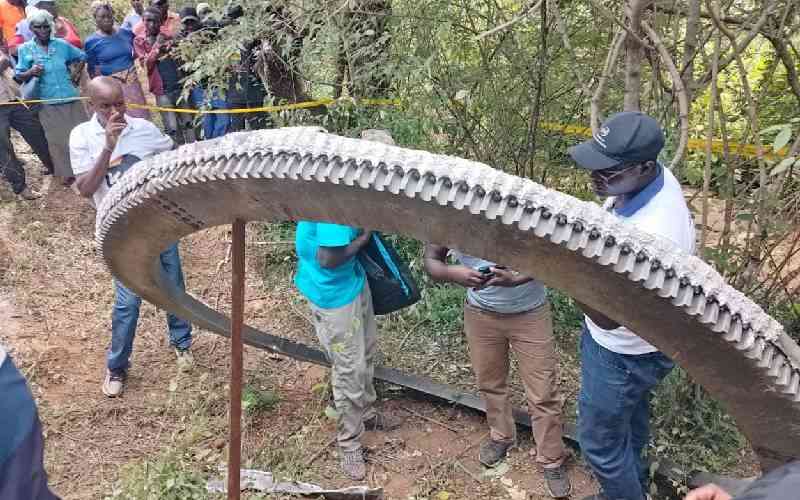
On December 30, 2024, the rural community of Nduluku in Mbooni East Sub-county, Kenya, was rattled by the fall of a mysterious metallic object from the sky. The debris, believed to be part of a rocket or satellite frame, weighed around one tonne and had a radius of 1.2 meters. It landed near Thwake River, causing panic among residents who heard a loud bang audible over 50 kilometers away. Upon impact, the object was described as red-hot, radiating heat that could be felt from several meters away.
Major Alois Were of the Kenya Space Agency (KSA) confirmed that the object was likely a piece of rocket debris that had failed to disintegrate completely upon re-entry into Earth's atmosphere. Under normal circumstances, such objects are supposed to burn up or safely land in the ocean.